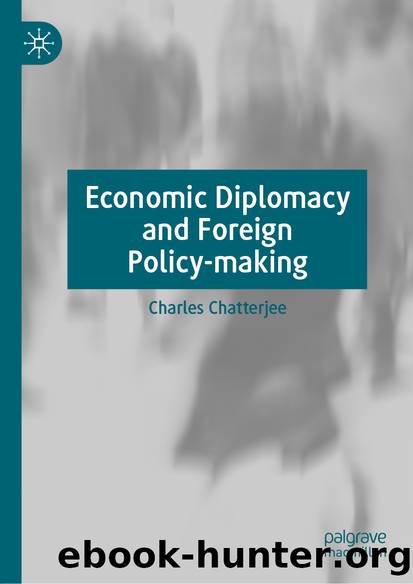Economic Diplomacy and Foreign Policy-making by Charles Chatterjee

Author:Charles Chatterjee
Language: eng
Format: epub
ISBN: 9783030490478
Publisher: Springer International Publishing
(d)the principle of State responsibility, which is a compulsory principle of international law and which has formed part of customary international law and
(e)the international minimum standard, which is a compulsory standard of international law, a breach of which gives rise to liability for the violator of the standard.
Based on this discussion it might not be unreasonable to maintain that current BITs fail to strike a balance between the interests of private foreign investors and host developing countries.
One aspect of economic diplomacy is to ensure fairness of benefits out of a deal for both the parties concerned—diplomats may find it worth considering whether the current state practice as evidenced by BITs needs reviewing and more balanced BITs should be concluded. Finally, if private foreign investors are so concerned about the protection of their interests in developing host States, perhaps developing host States through diplomacy should arrange a system whereby under collaborative arrangements between home States and developing host States the causes of apprehension, the lack of appropriate legislation, nationalisation, alleged discriminatory treatment etc. should be dealt with first.
In negotiating such treaties, the issue of “bargaining power” is unduly emphasised. “Bargaining power” stands for the power to “negotiate”. There is no room for “muscle power” in negotiating contracts or treaties. It is a game of “brain power” based on a thorough understanding of the issues—each other’s needs, and to embody those needs in the form of a document. Of course, such documents will have various dimensions or aspects, namely, objectives, protection of private foreign investors, the emerging investors’ protection, mutual favourable treatments in the form of lower tariffs or no tariffs, lower tax on incomes, transmission of profits etc.
An appropriately trained diplomat is a pre-requisite for achieving an effective economic diplomacy. “Effective” in this context would mean “profitable” for the country of the diplomat, which may take the form of “benefit” by virtue of providing skills and training in respect of particular industries, or even technical assistance in any other form, for example, by providing assistance in drafting legislation. An appropriately trained diplomat should be able to understand each other’s needs, which in turn, should form the basis for an effective economic rapport.
A diplomat from an emerging economy must appreciate that there might already exist a degree of prejudice against his/her market, and when such prejudice might become evident, he/she must be so trained as to overcome that difficulty, and to establish that the prejudice is not sustainable.
Instead of developing a sense of rivalry between themselves, a diplomat from an emerging market should try to develop and gradually establish rapport so that two apparently opposable parties could work together. Incidentally, from a policy standpoint, as explained earlier, that it might be an idea to work on a BOT or BOOT (Build, Own, Operate and Transfer). Economic diplomacy is a discipline for the best application of which diplomats need to understand not only their needs but also those of the other side with which they may be required to negotiate. In making the
Download
This site does not store any files on its server. We only index and link to content provided by other sites. Please contact the content providers to delete copyright contents if any and email us, we'll remove relevant links or contents immediately.
50 Economics Classics by Tom Butler-Bowdon(2066)
Six Billion Shoppers by Porter Erisman(1999)
Why Nations Fail: The Origins of Power, Prosperity, and Poverty by Daron Acemoglu & James Robinson(1787)
No Time to Say Goodbye(1759)
The Economist [T6, 22 Thg9 2017] by The Economist(1643)
Red Notice by Bill Browder(1590)
Currency Trading For Dummies by Brian Dolan(1546)
Thank You for Being Late by Thomas L. Friedman(1453)
Bitcoin: The Ultimate Guide to the World of Bitcoin, Bitcoin Mining, Bitcoin Investing, Blockchain Technology, Cryptocurrency (2nd Edition) by Ikuya Takashima(1417)
Amazon FBA: Amazon FBA Blackbook: Everything You Need To Know to Start Your Amazon Business Empire (Amazon Empire, FBA Mastery) by John Fisher(1302)
The Great Economists by Linda Yueh(1183)
Coffee: From Bean to Barista by Robert W. Thurston(1180)
The Future Is Asian by Parag Khanna(1172)
Pocket World in Figures 2018 by The Economist(1155)
Capitalism Without Capital: The Rise of the Intangible Economy by Jonathan Haskel(1125)
Grave New World by Stephen D. King(1109)
How Money Got Free: Bitcoin and the Fight for the Future of Finance by Brian Patrick Eha(1097)
The Sex Business by Economist(1085)
Cultural Intelligence by David C. Thomas(1011)
